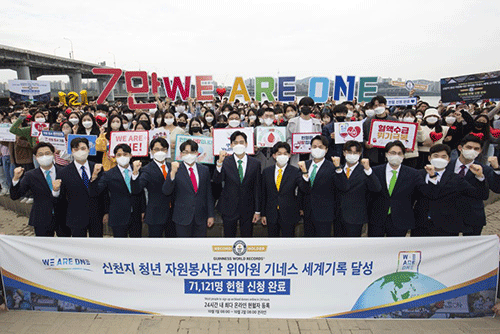Paheja Siririka
The Namibia Blood Transfusion Services (NamBTS) is pleading with individuals to come forth and donate blood due to the current shortage of the body fluid. The available blood stock is only sufficient for five days. NamBTS spokesperson Titus Shivute said this has devastating consequences as it means that the blood reserves for patients in hospitals around the country are insufficient and which could lead to a severe shortage if no significant blood donations are made shortly.
“With the upcoming Easter weekend upon us, during which trauma incidents around the country synonymously rise, we are appealing to all potential and regular blood donors to donate blood and help ensure that lives are saved,” shared Shivute.
He said safe blood saves lives and improves health.
Blood transfusion is needed for women with complications of pregnancy, such as ectopic pregnancies and haemorrhages before, during or after childbirth. “Children with severe anaemia often resulting from malaria or malnutrition; people with severe trauma following man-made and natural disasters; and many complex medical and surgical procedures and cancer patients need a blood transfusion,” he added.
Shivute said blood is also needed for regular transfusions for people with conditions such as thalassemia and sickle cell disease and is used to make products such as clotting factors for people with haemophilia.
Each whole blood donation is a total of 450ml which is easily replaceable by the body of a healthy donor and you are eligible to donate blood every 56 days which is exactly every eight weeks.
Dr Britta Lohrke from the health ministry’s blood transfusion department said in cases where there is no sufficient blood in stock, doctors will usually be informed and requested to use blood conservatively considering good Patient Blood Management (PBM) principles.
“As the ministry is the biggest blood user, only emergency surgery or transfusion could be advised. This of course would be relayed to private institutions too. This means elective surgery cases would have to be cancelled, but this would, of course, hinder the normal flow and treatment of patients and must be prevented at all costs,” she said.
She stated other than a blood donation, there are ways of assisting those in need by investigating the blood status and checking for underlying anaemia in advance, delaying surgery if possible, giving the patient iron and vitamins and time to build up their red blood cells.
“If it is an emergency, use the minimum amount of blood feasible like considering international evidence-based haemoglobin thresholds. If there are medical conditions that require blood, find the cause and try to alleviate anaemia before even considering blood transfusion,” informed Lohrke.
She said regular training of healthcare workers in hospitals, and training of students in colleges and universities are ways the ministry has intervened on how to handle issues when it comes to the significance of blood donation.
The World Health Organisation says blood transfusion saves lives and improves health, but many patients requiring transfusion do not have timely access to safe blood, adding that providing safe and adequate blood should be an integral part of every country’s national healthcare policy and infrastructure.
About 118.4 million blood donations are collected worldwide, 40% of these are collected in high-income countries, home to 16 % of the world’s population. WHO states that 62 countries report collecting fewer than 10 donations per 1000 people.
Of these, 34 countries are in the WHO African region. World Health Assembly resolution WHA63.12 urges all member states to advance national blood systems grounded on volunteering in unpaid donations and to work towards the goal of self-sufficiency.


